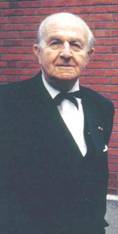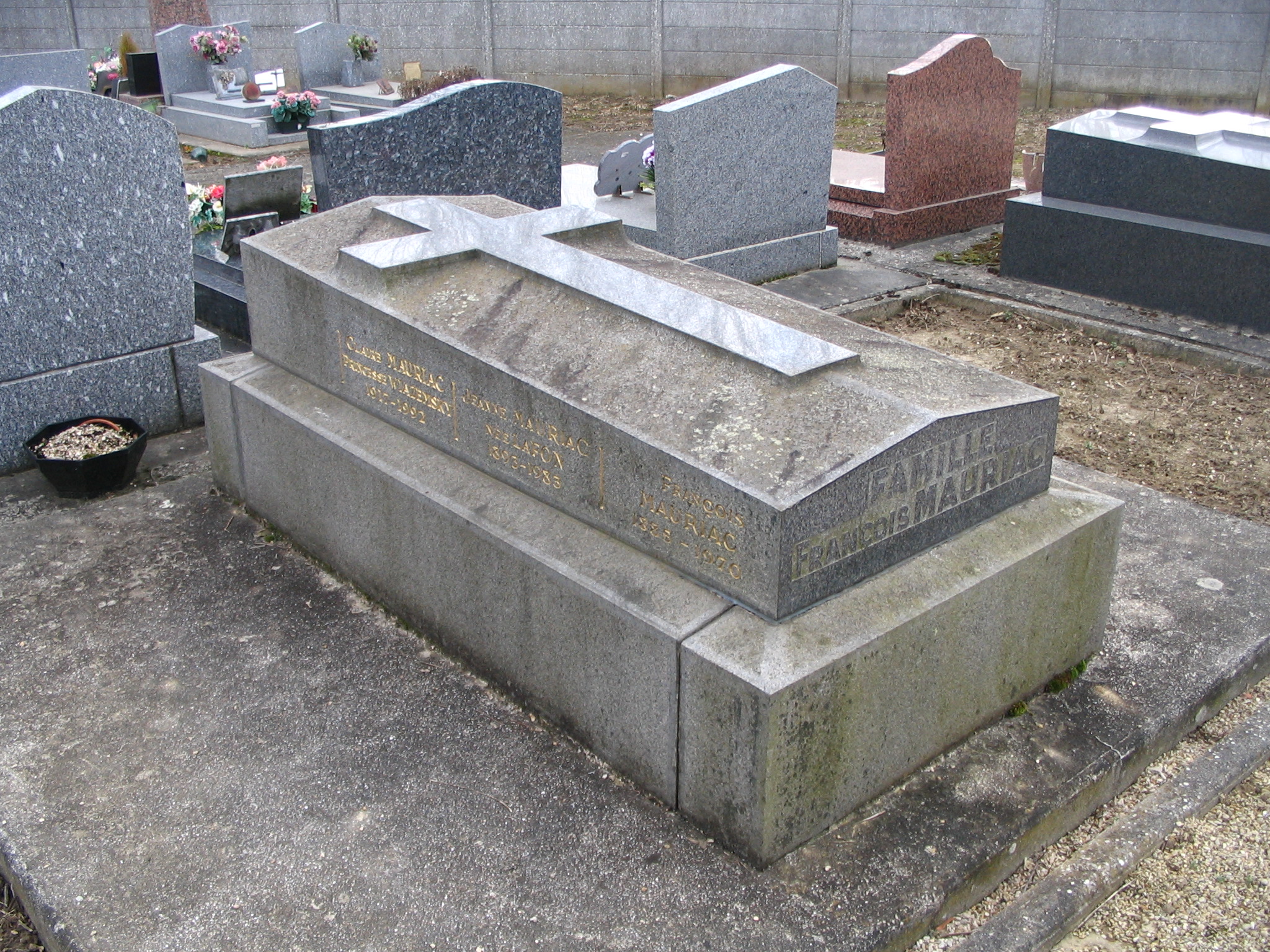|
International Agency For Research On Cancer
The International Agency for Research on Cancer (IARC; french: Centre International de Recherche sur le Cancer, CIRC) is an intergovernmental agency forming part of the World Health Organization of the United Nations. Its role is to conduct and coordinate research into the causes of cancer. It also collects and publishes surveillance data regarding the occurrence of cancer worldwide. Its IARC monographs programme identifies carcinogenic hazards and evaluates environmental causes of cancer in humans. IARC has its own governing council, and in 1965 the first members were the Federal Republic of Germany, France, Italy, the United Kingdom, and the United States of America. Today, IARC's membership has grown to 27 countries. History In late February 1963, after he experienced his spouse suffering and dying of cancer, journalist and peace activist Yves Poggioli sent a letter to Emmanuel d'Astier de la Vignerie relating his story, and urging support for the creation of an inter ... [...More Info...] [...Related Items...] OR: [Wikipedia] [Google] [Baidu] |
Elisabete Weiderpass
Elisabete Weiderpass-Vainio is a Brazilian cancer researcher who is Director of the International Agency for Research on Cancer, a part of the World Health Organization. Her research considers the epidemiology and prevention of cancer. Early life and education Weiderpass is from Santo André, São Paulo. In an interview with ''The Lancet'' she explained that she grew up in a working-class family, and that it was unclear whether or not she would attend university. Her parents encouraged her to continue her studies, and she was awarded a scholarship to study medicine at the Federal University of Pelotas in south Brazil. During her undergraduate degree, Weiderpass became increasingly interested in epidemiology and public health. She remained at the Federal University of Pelotas for her graduate studies, where she completed a master's degree in epidemiology. Weiderpass moved to the Karolinska Institute for her doctoral studies, where she studied the aetiology of endometrial cancer. ... [...More Info...] [...Related Items...] OR: [Wikipedia] [Google] [Baidu] |
François Perroux
François Perroux (December 19, 1903 in Saint-Romain-en-Gal – June 2, 1987 in Stains) was a French economist. He was named Professor at the Collège de France, after having taught at the University of Lyon (1928 – 1937) and the University of Paris (1935 – 1955). He founded the Institut de Sciences Economiques Appliquées in 1944. He was an outspoken supporter of corporatism. He was terribly critical of the leading financial and economic policies toward the Third World The term "Third World" arose during the Cold War to define countries that remained non-aligned with either NATO The North Atlantic Treaty Organization (NATO, ; french: Organisation du traité de l'Atlantique nord, ), also called the Nor ... during the half-century of his career. He said that they took insufficient account of the originality, culture, and concrete situations of the countries concerned, and were too quantitative, too Western in concept, and too centered on the interests of the rich ... [...More Info...] [...Related Items...] OR: [Wikipedia] [Google] [Baidu] |
List Of IARC Group 2A Carcinogens
The agents in this list have been classified in group 2A (probable carcinogens) by the International Agency for Research on Cancer (IARC). The term "agent" encompasses both substances and exposure circumstances that pose a risk. This designation is applied when there is ''limited evidence'' of carcinogenicity in humans as well as ''sufficient evidence'' of carcinogenicity in experimental animals. In some cases, an agent may be classified in this group when there is ''inadequate evidence'' of carcinogenicity in humans along with ''sufficient evidence'' of carcinogenicity in experimental animals and ''strong evidence'' that the carcinogenesis is mediated by a mechanism that also operates in humans. Exceptionally, an agent may be classified in this group solely on the basis of ''limited evidence'' of carcinogenicity in humans. Agents Substances *Acrylamide * Adriamycin * Androgenic (anabolic) steroids *Azacitidine *BCNU (Bischloroethyl nitrosourea) * Captafol * Chloral *Chloral hyd ... [...More Info...] [...Related Items...] OR: [Wikipedia] [Google] [Baidu] |
List Of IARC Group 1 Carcinogens
Substances, mixtures, and exposure circumstances in this list have been classified as group 1 by the International Agency for Research on Cancer (IARC): The agent (mixture) is carcinogenic to humans. The exposure circumstance entails exposures that are carcinogenic to humans. This category is used when there is sufficient evidence of carcinogenicity in humans. Exceptionally, an agent (mixture) may be placed in this category when evidence of carcinogenicity in humans is less than sufficient but there is sufficient evidence of carcinogenicity in experimental animals and strong evidence in exposed humans that the agent (mixture) acts through a relevant mechanism of carcinogenicity. Agents Infectious conditions Viruses *Human immunodeficiency virus type 1 (infection with) * Human T-cell lymphotropic virus type I *Human papillomavirus types 16, 18, 31, 33, 35, 39, 45, 51, 52, 56, 58, and 59 *Hepatitis B virus (chronic infection with) *Hepatitis C virus (chronic infection with) * K ... [...More Info...] [...Related Items...] OR: [Wikipedia] [Google] [Baidu] |
Peter Boyle (epidemiologist)
Peter Boyle, FRSE FFPH FRCPS(Glas) FRCP(Edin) FMedSci, (8 June 1951 – 23 July 2022) was a British epidemiologist. He conducted research on globalisation of cancer, where he showed the dramatic increase of cancer in low- and medium income countries. Early life and education Boyle was born in Glasgow, Scotland and studied statistics at the University of Glasgow (BSC in 1974) and received a Doctor of Philosophy degree in Epidemiology in 1985 from the University of Glasgow, Faculty of Medicine). Career He initially wanted to become a teacher but became fascinated in science. From 1974 to 1977 he worked as a statistician at the University Department of Medicine, Glasgow and the following seven years at the West of Scotland Cancer Surveillance Unit in Glasgow. Here, he developed his lifelong concern over tobacco and tobacco control, and was drawn into epidemiology. In 1984, he moved to Boston and worked at the Departments of Biostatistics and Epidemiology, Harvard School of Publ ... [...More Info...] [...Related Items...] OR: [Wikipedia] [Google] [Baidu] |
Lorenzo Tomatis
Lorenzo (Renzo) Tomatis (Sassoferrato, Italy, 2 January 1929 - Lyon, France, 21 September 2007) was an Italian physician and experimental oncologist who researched carcinogenesis and its primary prevention Tomatis served as the Director from 1982 until 1993 of the International Agency for Research on Cancer in Lyon - (IARC). During his tenure at IARC, Tomatis led the effort to create the ''IARC Monographs on the Evaluation of Carcinogenic Risk to Humans'' (the so-called “orange books”), a tool for the primary prevention of cancer. Tomatis produced over 350 publications and 10 books. He developed essays on carcinogenesis bioassays which recognized trans-placental and trans-generational carcinogenics, thus highlighting the vulnerabilities of early-life exposure. Tomatis translated many animal experimental findings to human risk. He used these many qualifications to promote health strategies for the ''primary'' prevention of cancer—that is, reduced exposure to carcinog ... [...More Info...] [...Related Items...] OR: [Wikipedia] [Google] [Baidu] |
Le Monde
''Le Monde'' (; ) is a French daily afternoon newspaper. It is the main publication of Le Monde Group and reported an average circulation of 323,039 copies per issue in 2009, about 40,000 of which were sold abroad. It has had its own website since 19 December 1995, and is often the only French newspaper easily obtainable in non-French-speaking countries. It is considered one of the French newspapers of record, along with ''Libération'', and '' Le Figaro''. It should not be confused with the monthly publication ''Le Monde diplomatique'', of which ''Le Monde'' has 51% ownership, but which is editorially independent. A Reuters Institute poll in 2021 in France found that "''Le Monde'' is the most trusted national newspaper". ''Le Monde'' was founded by Hubert Beuve-Méry at the request of Charles de Gaulle (as Chairman of the Provisional Government of the French Republic) on 19 December 1944, shortly after the Liberation of Paris, and published continuously since its first editi ... [...More Info...] [...Related Items...] OR: [Wikipedia] [Google] [Baidu] |
Charles De Gaulle
Charles André Joseph Marie de Gaulle (; ; (commonly abbreviated as CDG) 22 November 18909 November 1970) was a French army officer and statesman who led Free France against Nazi Germany in World War II and chaired the Provisional Government of the French Republic from 1944 to 1946 in order to restore democracy in France. In 1958, he came out of retirement when appointed President of the Council of Ministers (Prime Minister) by President René Coty. He rewrote the Constitution of France and founded the Fifth Republic after approval by referendum. He was elected President of France later that year, a position to which he was reelected in 1965 and held until his resignation in 1969. Born in Lille, he graduated from Saint-Cyr in 1912. He was a decorated officer of the First World War, wounded several times and later taken prisoner at Verdun. During the interwar period, he advocated mobile armoured divisions. During the German invasion of May 1940, he led an armoured ... [...More Info...] [...Related Items...] OR: [Wikipedia] [Google] [Baidu] |
Le Corbusier
Charles-Édouard Jeanneret (6 October 188727 August 1965), known as Le Corbusier ( , , ), was a Swiss-French architect, designer, painter, urban planner, writer, and one of the pioneers of what is now regarded as modern architecture. He was born in Switzerland and became a French citizen in 1930. His career spanned five decades, and he designed buildings in Europe, Japan, India, and North and South America. Dedicated to providing better living conditions for the residents of crowded cities, Le Corbusier was influential in urban planning, and was a founding member of the (CIAM). Le Corbusier prepared the master plan for the city of Chandigarh in India, and contributed specific designs for several buildings there, especially the government buildings. On 17 July 2016, seventeen projects by Le Corbusier in seven countries were inscribed in the list of UNESCO World Heritage Sites as The Architectural Work of Le Corbusier, an Outstanding Contribution to the Modern Movement. Le ... [...More Info...] [...Related Items...] OR: [Wikipedia] [Google] [Baidu] |
Ambroise-Marie Carré
Ambroise-Marie Carré OP (25 July 190815 January 2004) was a Catholic priest, author and member of the Académie française. Born in Fleury-les-Aubrais in Loiret, France, Carré studied at l'école Saint-Joseph and the collège Sainte-Croix de Neuilly before entering the Dominican order in 1926 and being ordained a priest in 1933. Not long thereafter, he was to edit, from 1936 until 1939, the ''Revue des Jeunes''. Under the German Occupation, following the capitulation of the French government to the Nazis during the Second World War, Carré aided those persecuted by the Vichy government, regardless of their religion or ethnicity; for this, he was awarded the ''Légion d'honneur'' and the ''Croix de Guerre''. Both before and after the war, he preached many sermons and participated in conferences in France and abroad (especially in the Netherlands, Switzerland, Italy, and Belgium). He preached the Lenten sermons many times at Notre Dame de Paris, and in 1964, Paul VI called him ... [...More Info...] [...Related Items...] OR: [Wikipedia] [Google] [Baidu] |
François Mauriac
François Charles Mauriac (, oc, Francés Carles Mauriac; 11 October 1885 – 1 September 1970) was a French novelist, dramatist, critic, poet, and journalist, a member of the'' Académie française'' (from 1933), and laureate of the Nobel Prize in Literature (1952). He was awarded the Grand Cross of the '' Légion d'honneur'' in 1958. He was a lifelong Catholic. Biography François Charles Mauriac was born in Bordeaux, France. He studied literature at the University of Bordeaux, graduating in 1905, after which he moved to Paris to prepare for postgraduate study at the École des Chartes. On 1 June 1933 he was elected a member of the ''Académie française'', succeeding Eugène Brieux. A former Action française supporter, he turned to the left during the Spanish Civil War, criticizing the Catholic Church for its support of Franco. After the fall of France to the Axis during the Second World War, he briefly supported the collaborationist régime of Marshal Pétain, but ... [...More Info...] [...Related Items...] OR: [Wikipedia] [Google] [Baidu] |




